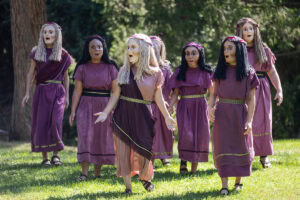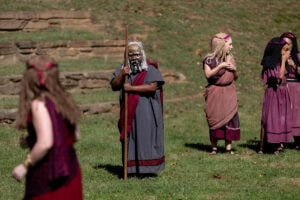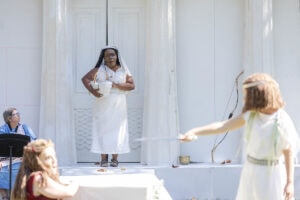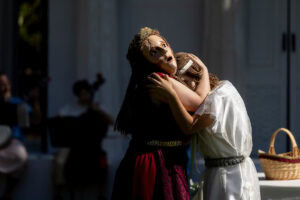Greek Play tradition continues with Euripides’ ‘Ion’
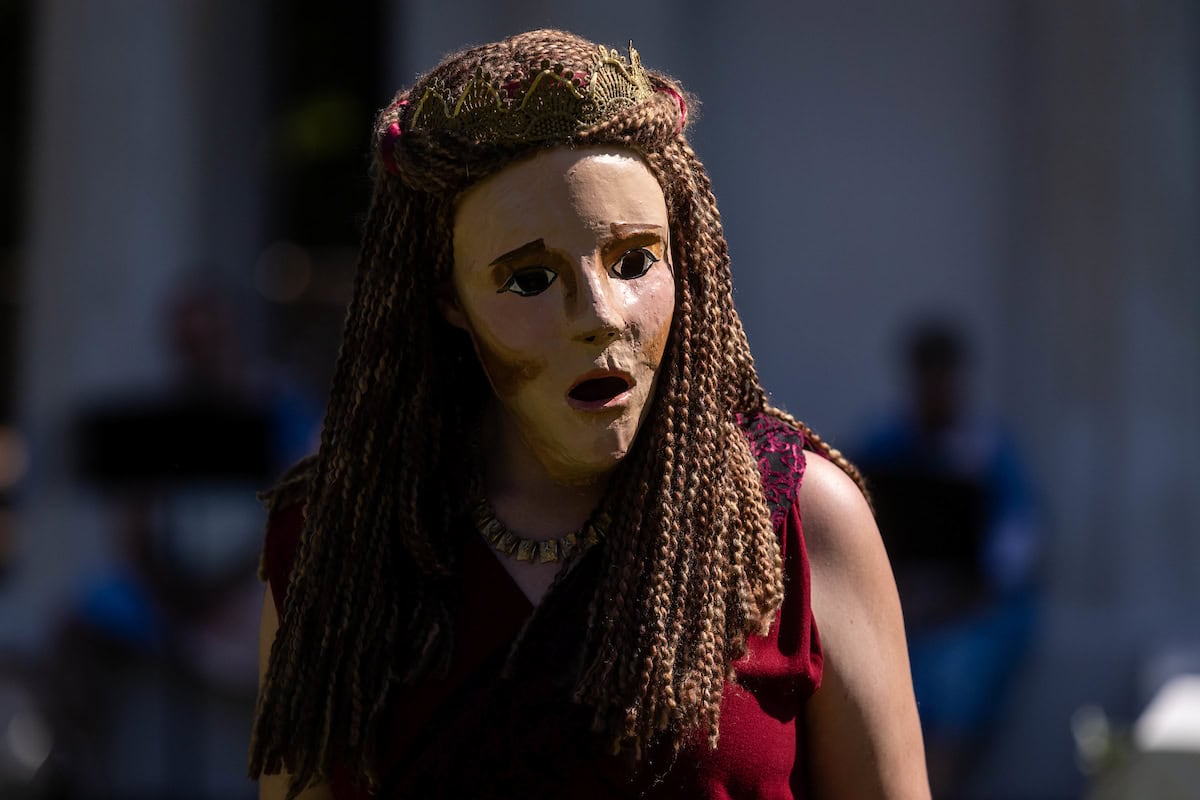
Euripides’ Ion is unique in a lot of ways, including its role within the canon of Greek tragedies.
“It’s not what you expect from a tragedy, because it has a happy ending,” said Amy R. Cohen, classics professor and Randolph’s Catherine Ehrman Thoresen ’23 and William E. Thoresen Chair of Speech and Theatre. “I found that intriguing.”
Cohen is directing Ion, with music direction by fellow Randolph professor Randall Speer and choreography by Mitchell Ngwenya ’25, for the College’s 2023 Greek Play, a tradition that dates back to 1909.
Performances, which are free and open to the public, will be held at 4 p.m. on Oct. 6, 7, and 8 in Randolph’s Mabel K. Whiteside Greek Theatre.
The play follows two characters: the titular orphan, a servant in Apollo’s temple who discovers his true lineage, and his mother, Athenian queen Creusa. Creusa secretly gave birth to Ion after being raped by Apollo and left the child in a basket with sacred trinkets to protect him, not expecting him to survive.
“She doesn’t know that Apollo had his brother Hermes rescue the baby and bring him to Delphi to be raised at the temple,” Cohen explained. “And Ion doesn’t know his father is Apollo and his mother is this Athenian princess, now queen. And Creusa doesn’t know that this baby survived.”
Their paths cross once again when Creusa and her husband, Xuthus, travel to Delphi.
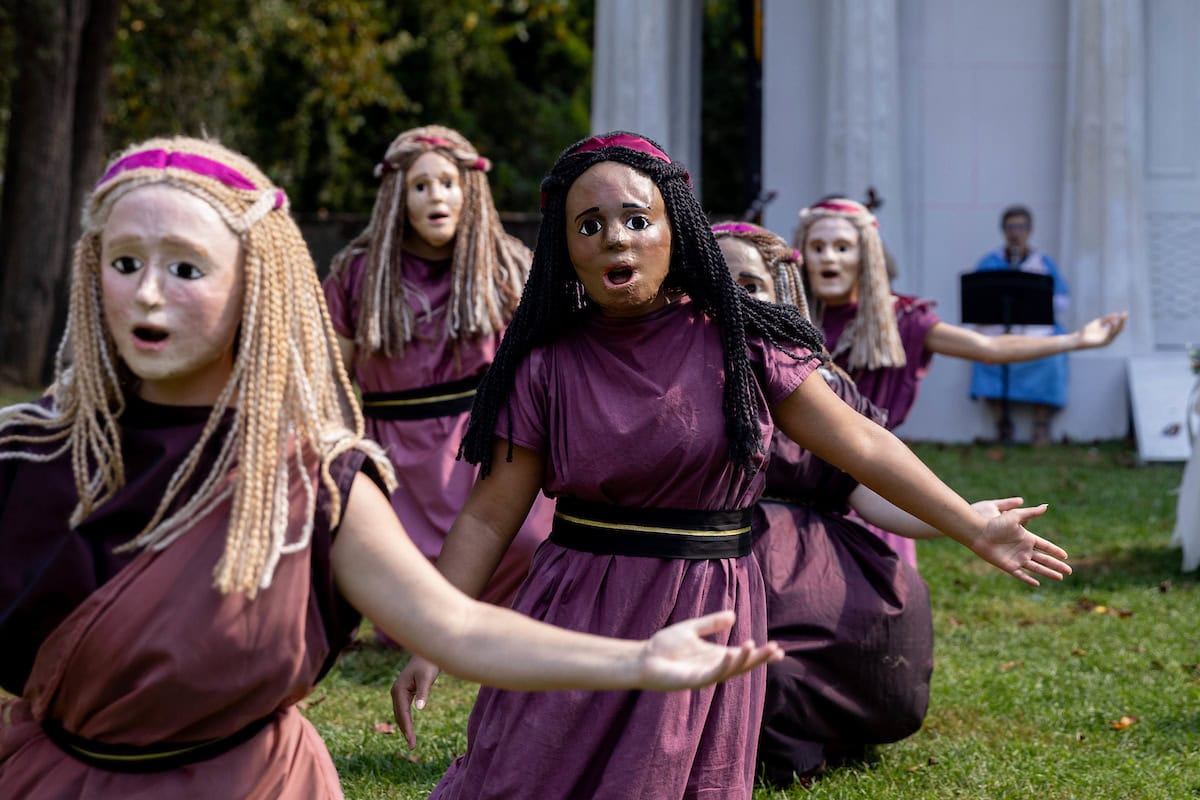
Ion, believed to be written between 414 and 412 BC, is unique in the way it challenges the gods and their right to interfere with the destinies of humans.
“It’s rare in Ancient Greek literature for the gods to be blameworthy,” Cohen said, “and this play says it in pretty clear terms.”
Composer Jesse Cohen-Greenberg, who wrote the music for Randolph’s production of Medea in 2018, returned to do the same for Ion, which has more musical moments than the average Greek play.
“We’re enthusiastic about doing music and choreography, so we found that exciting,” Cohen said. “It’s beautiful music and it’s good for this chorus, but it also works so well with the themes of the play. Musically, it’s doing things.”
The show features three actors portraying eight named roles, and nine members of the traditional Greek chorus—who are, in fact, all taking chorus with Speer this fall.
“These actors are so smart and so invested,” Cohen said. “I feel like we’ve been discovering the play together.”
